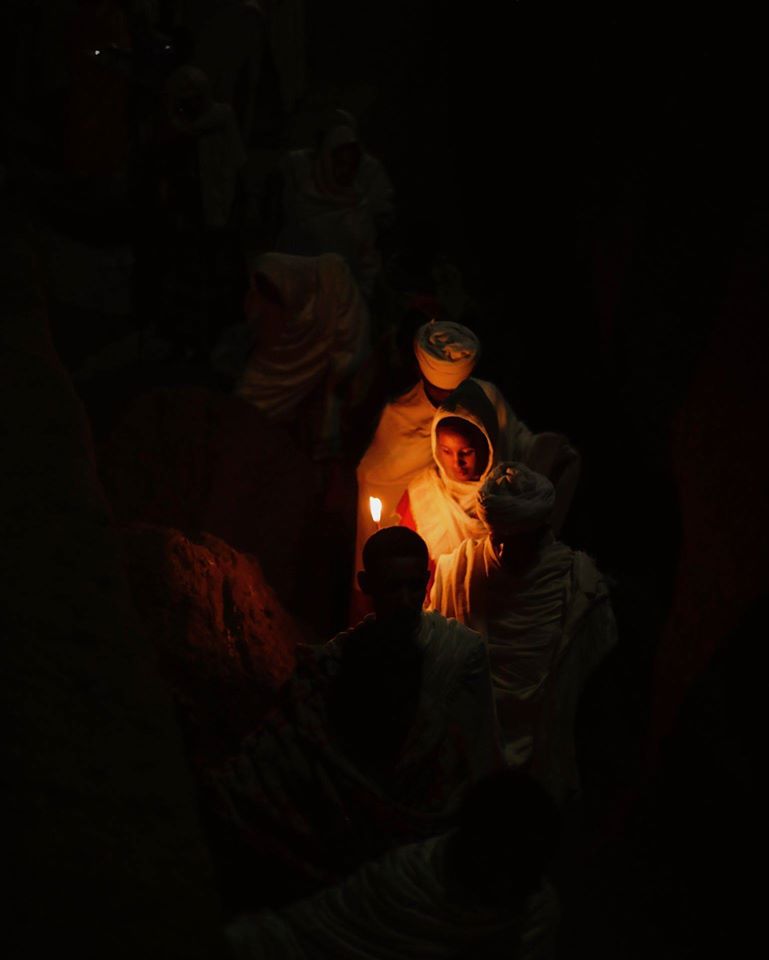
Ethiopian Easter during COVID-19
The entry of COVID-19 in Ethiopia was declared when the Christian population of Ethiopia is under the 55 days of fasting called Lent, and ends with the celebration of Easter or in Ethiopia commonly known as ‘Fasika’.
The way of celebrating will not be the same as it was before the outbreak of coronavirus. And I wrote this piece focusing on how Ethiopian Christians will celebrate Fasika under strict social distancing guidelines.
The celebration of Ethiopian Easter during the normal days was not the same as it is now, as matter of fact it is one of the colorful and joyful celebration in the world. During the 55 days of fasting where no meat or dairy products are consumed, the Christian flocks would go to church in mass to attend service until the main holiday. Many believe it is the mass gatherings that give brightness to the prayers.
During the prayers Christian believers would follow the choir’s descant, walk around the church in solemn procession and pray while the priest serves the Holy Communion.
The Fasting season also marks the time where the mass orthodox Christians prostrate themselves in church, bowing down and rising up asking the almighty for forgiveness.
Christian Catholics, Protestants and Adventists also remember the death and resurrection of Jesus through their daily prayer denominations. The last week and breaking of the long fasting period marks Good Friday followed by the big awaited day; Fasika.
As I have mentioned earlier ‘Ethiopian Easter during the normal days is very colorful’ due to the fact the brightness of the day starts on the eve when revelers participate mass and colorful service lit with candles followed by having special feasts that mark the end of the long fast.
Traditional and favorite meals and drinks will be served for families, neighbors and guests. People would get dressed in colorfully based on their earning capacity, a thin white cotton piece of cloth with brightly colored stripes across the end, which, in Amharic is called ‘Habesha Lebes’ or ‘Kuta’. It is the favorite dress among many, but some are also seen wearing western clothes in design for commemorating the day.
The big day will pass with laughter, music, and dance in group but here we are in time of COVID-19 where the pandemic makes Easter mass gathering at churches, family and friends get together are not recommended. Furthermore, the long tradition of serving raw meat as special holiday meal is so unlikely due to its possibility of transmitting the virus.
However, preserving activities I did observe the virus didn’t dampen the spirit of the believers at all.
Foremost, various Orthodox, Catholic, Protestant and Adventist churches were streaming the Easter mass live on various Ethiopian television channels. And the live streaming of the prayers enabled the flocks to watch the churches proceedings from their homes.
The online services are given by clergy preaching to cameras in almost empty churches.
Beside the live streaming of the Christian prayers, Muslims Ethiopians were also able to see the Islamic prayer service through the broadcast channel due to the closing of Mosques.
After multiple cases of the virus were reported in Ethiopia, movements are slowing down and lockdowns are being imposed by the regional governments. This measure in turn has abstained the market exchange between buyers and sellers. However, while interviewing few residents of Addis Ababa, I have observed people are experimenting with new ways to spend Easter.
These includes from commemorating the holiday while avoiding gathering with loved ones, ‘the physical separation would bring all of us closer than before at heart’ as many residents believe.
Holidays are great reason to get together with families and friends, but the gathering can still be done virtually and if one is living together with loved family around, the holiday would be more reason to strengthen family relation.
While celebrating Easter at home for everyone this year it is important to think of and support others who do not have the sources to overcome this difficult time. Learning to lean on each other during difficulty is important and it has been witnessed in various ways.
Various entrepreneurs, celebrities and residents of Addis Ababa have given what they have to overcome the world wide health crisis.
Youth around the city of Addis Ababa are seen giving free sanitation service as reflection of brotherhood.
Mongers are also given additional support from the government taking into consideration the fair distribution of material to the community. The community is gradually developing the awareness on the protection guidelines including consumption of water and sanitation materials within every minute and keeping social distance.
Lastly, I would like to wish all Christians ‘Happy Easter Holiday’.
The Ethiopian Herald April 18 /2020
BY BIRUKTAWIT BIHON





Bayar4d link alternatif login dan daftar agen slot online resmi dan percaya
In what ways did the pandemic impact communal aspects of Ethiopian Easter, such as gatherings, feasts, and traditional attire, and how did individuals and communities respond to these changes? Universitas Telkom